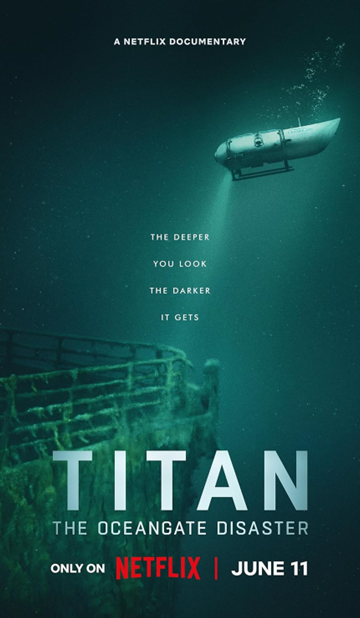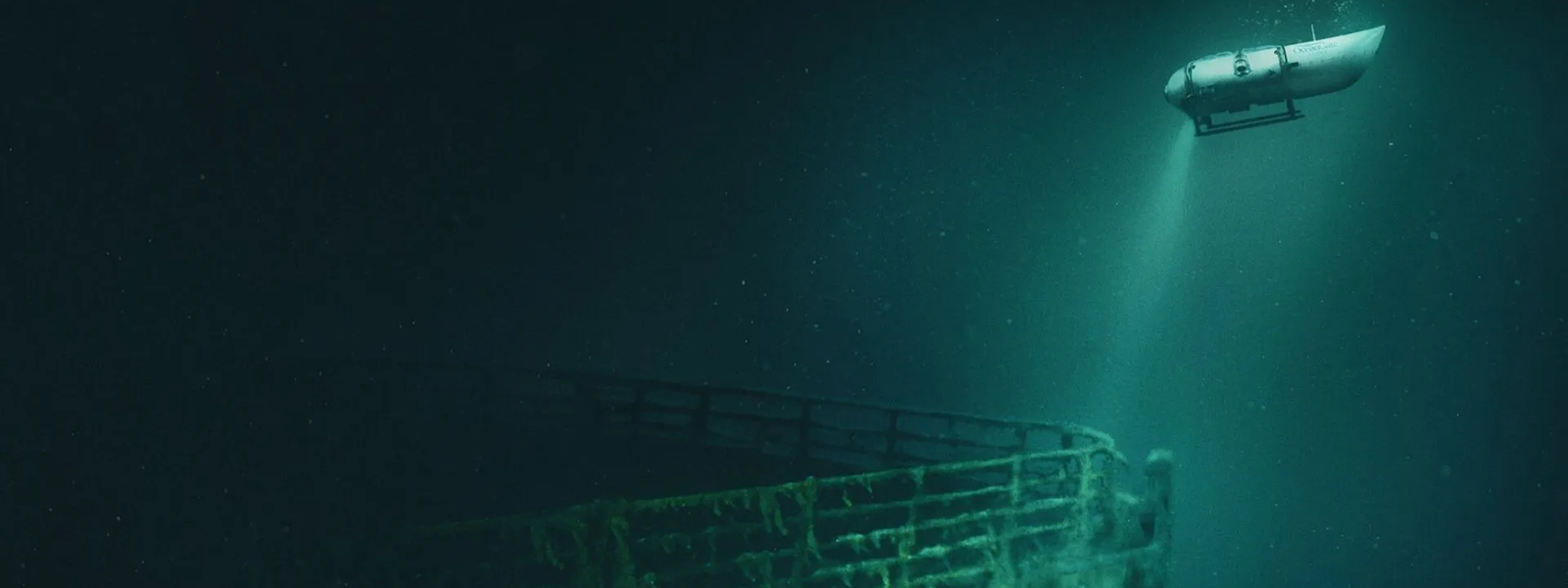Director – Mark Monroe
Starring – Stockton Rush (Archive footage), David Lochridge (Self), Emily Hammermeister (Self) and Tony Nissen (Self)
Runtime – 111 minutes
Release date – 6th June 2025 (Netflix)
Certificate – 12
Plot – OceanGate’s Titan tourist submersible imploded in 2023 on a deep-sea dive to the Titanic. Detailing how a bold vision ended in tragedy.

REVIEW:
Titan: The OceanGate Disaster is the first documentary I’ve reviewed on this site—and I must say, it’s an experience I won’t forget in a hurry. Ahead of writing this, I posed a question on my socials to the cinephile community: Do documentaries count as films? The overwhelming consensus was yes—documentaries are a genre in their own right, crafted with intent, perspective, and often the same level of cinematic ambition. With that in mind, I approached Titan as I would any other genre, and what I found was a project that was just as gripping, infuriating, and sobering as many high-stakes thrillers I’ve reviewed.
Directed by the well-respected documentarian Mark Monroe, this nearly two-hour deep dive is focused almost entirely on the events leading up to the Titan submersible’s catastrophic implosion in 2023. The film wastes no time building suspense—it assumes you know the ending. But what it does do is take you on the painful journey of how this tragedy became not just a possibility, but an inevitability. It’s chilling, because the warning signs weren’t subtle. They were flashing in neon, and no one in charge hit the brakes.
A large portion of the film is framed around OceanGate CEO Stockton Rush, and quite frankly, the portrait it paints is damning. Rush is portrayed as a man driven not by discovery, but by ego—chasing the legacy of tech moguls like Elon Musk while ignoring the basic principles of safety, ethics, and accountability. Through archived interviews, whistleblower testimonies, and technical breakdowns, the documentary meticulously exposes how Rush’s shortcuts and ambition steered the Titan to its fate. And while that’s the documentary’s strength—it’s also its greatest flaw.
There’s a distinct imbalance here. Titan is at its best when dissecting the warnings, the ignored emails, and the experimental nature of the sub’s construction. The amount of information crammed into this section is impressive. It’s clear Monroe and his team did their homework. You walk away feeling informed, disturbed, and even angry. But just as you’re preparing for the next chapter—what came after the implosion—the documentary abruptly ends. There’s no extended look at the international search effort, no insight into how the families were supported, or what consequences OceanGate may be facing now.
Perhaps the ongoing investigation means legal limitations prevented this from being included. If that’s the case, then the absence is understandable. But from a storytelling perspective, it leaves the documentary without a true ending. It fizzles where it should have left you with something to sit with. The lack of resolution is disappointing, especially since the lead-up was handled so thoroughly. It felt like reading a gripping true crime novel only to find the last chapter had been torn out.
One aspect that adds to the emotional weight of the film is just how recent this tragedy was. To think the Titan imploded only two years ago and has already been immortalised in a Netflix documentary says something about the pace of the modern news cycle—but also about our enduring fascination with the Titanic. That infamous ship has captivated imaginations for over a century. But this documentary explores something even more unsettling: the idea that history isn’t just repeating itself, it’s being exploited.
What Titan: The OceanGate Disaster does best is provoke important questions about accountability, innovation, and ego. It shows how easily safety can be sacrificed in pursuit of headlines and legacy. The film left me reflecting not just on what happened, but on the culture that allows figures like Rush to be cheered on—until tragedy strikes. I found myself thinking about the families of those five individuals who boarded that vessel, trusting they were in safe hands. This film is, in part, a testament to their memory.
While Titan is not a perfect documentary, it’s an impactful one. It serves as both an exposé and a cautionary tale. Hopefully, a follow-up will arrive in time—one that delves deeper into the aftermath and ongoing implications of this disaster. Until then, this serves as a powerful, if incomplete, chronicle of hubris beneath the surface. My thoughts go out to the loved ones of those who were lost. And to anyone who dares dive to such depths again—may they remember the cost of getting it wrong.



